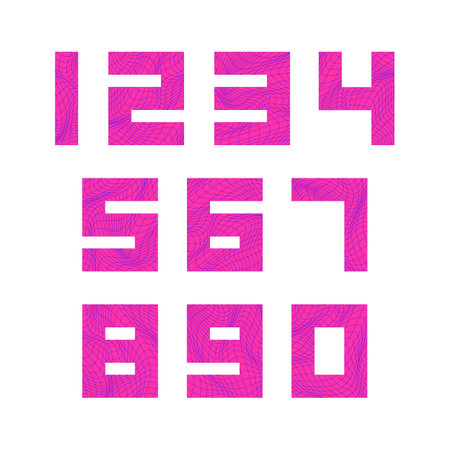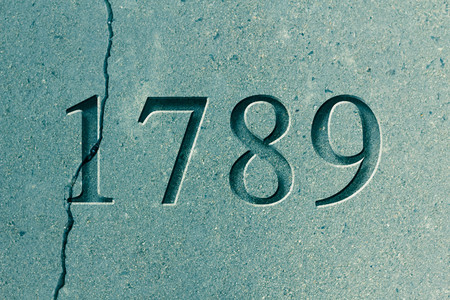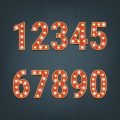Introduction to the I Ching and Its Relevance in Modern Decision Making
The I Ching, also known as the Book of Changes, stands as one of the oldest surviving texts in Chinese culture, with roots dating back over three millennia. At its core, the I Ching is a philosophical and divinatory system that explores the patterns of change in life through a unique structure of 64 hexagrams—symbols formed by broken and unbroken lines. Each hexagram represents a specific situation or energy dynamic, providing insight into complex human dilemmas. While it originated in ancient China, the I Ching’s principles of balance, adaptability, and ethical reflection have found renewed relevance among modern American thinkers and decision-makers. The text’s foundational belief—that change is constant and that wise decisions come from understanding context—mirrors contemporary American values around ethical leadership and personal responsibility. Today, business leaders, therapists, and individuals across the United States turn to the I Ching not only for guidance but also for its holistic approach to evaluating consequences and intentions. By encouraging users to pause, reflect, and consider multiple perspectives before acting, the I Ching resonates with American ideals of thoughtful decision-making, inclusivity, and ethical accountability. In a rapidly changing world where choices can have far-reaching impacts, this ancient guidebook remains a relevant compass for those seeking clarity and integrity in their personal and professional lives.
2. Understanding the Ethical Framework of the I Ching
The I Ching, also known as the Book of Changes, is more than an ancient Chinese text for divination—it is a profound ethical guide that has shaped decision-making for millennia. At its core, the I Ching promotes enduring values such as integrity, balance, and respect, which resonate strongly with American ideals like fair play and moral clarity. When Americans use the I Ching in decision making, they are not only consulting an oracle but engaging with a philosophy that encourages thoughtful action rooted in ethical principles.
How the I Ching Mirrors American Values
The ethical framework of the I Ching aligns closely with foundational American cultural values. In both contexts, making decisions with honesty and fairness is paramount. The table below compares key ethical concepts between the I Ching and American culture:
| I Ching Principle | American Parallel | Practical Example |
|---|---|---|
| Integrity (誠信) | Honesty / Fair Play | A business leader chooses transparency over hidden agendas when facing a crisis. |
| Balance (中庸) | Moderation / Justice | A manager weighs all sides before implementing workplace policies to ensure fairness. |
| Respect (尊重) | Civil Rights / Mutual Respect | An educator values diverse opinions in classroom discussions, promoting inclusiveness. |
Ethical Guidance in Daily Life Decisions
The I Ching’s guidance calls on individuals to act with self-awareness and social consciousness. Just as Americans value “doing the right thing,” the I Ching emphasizes actions that uphold harmony and avoid extremes or rashness. For example, Hexagram 15 (“Modesty”) advises humility—a trait admired in both Confucian and American leadership styles. Likewise, Hexagram 61 (“Inner Truth”) underscores sincerity, echoing the U.S. commitment to authenticity and open communication.
Why This Matters for Modern Decision Making
In today’s fast-paced world, ethical ambiguity often clouds judgment. Turning to the I Ching helps clarify intentions by urging users to pause, reflect on consequences, and prioritize collective well-being—values intrinsic to both Confucian ethics and American civic responsibility. Thus, integrating the I Ching’s ethical framework into decision making not only provides ancient wisdom but reinforces time-tested virtues essential for modern American society.

3. How to Consult the I Ching: Steps, Methods, and Cultural Adaptation
Step-by-Step Guide: From Coins to Hexagrams
The I Ching, or Book of Changes, is a centuries-old Chinese text used for divination and decision-making. For Americans seeking actionable insight, here’s a streamlined approach:
Step 1: Framing Your Question
Clarity is key. Begin by formulating a focused question relevant to your decision—examples might be “Should I accept this job offer?” or “How should I approach this conflict at work?” Ethical consideration matters; avoid questions that invade others’ privacy or manipulate outcomes.
Step 2: Casting the Hexagram
Traditionally, you can use either three coins or fifty yarrow sticks. For busy American lifestyles, coins are faster and widely accessible:
- Designate heads as 3 and tails as 2.
- Toss three coins at once and sum the values (possible totals: 6, 7, 8, or 9).
- Record each line from bottom to top, repeating the toss six times to build your hexagram.
Quick Tip:
If you’re on the go, digital I Ching apps replicate the coin method efficiently, allowing for quick consultation during lunch breaks or commutes.
Step 3: Interpreting Your Hexagram
Match your resulting hexagram to one of the 64 patterns in an English-language I Ching translation. Pay attention to moving (changing) lines—these represent dynamic elements influencing your situation. Read both the main hexagram’s judgment and any changing lines for a nuanced answer.
Cultural Adaptation for American Lifestyles
- Time Efficiency: Use concise translations and mobile apps for rapid readings without losing depth.
- Cultural Relevance: Frame questions around contemporary issues—career choices, relationships, or ethical dilemmas common in American society.
- Integration with Other Tools: Combine I Ching insights with data-driven decision matrices or SWOT analyses for a holistic approach.
- Mental Framework: Treat the process as reflective guidance rather than fortune-telling; this aligns with American values of personal agency and self-improvement.
The I Ching remains a powerful tool when adapted mindfully. By blending traditional steps with modern convenience, Americans can access ancient wisdom that fits today’s fast-paced world while maintaining respect for its roots.
4. Guidance in Daily Life: Real-World Scenarios
When it comes to decision-making, the I Ching has found a unique place in the lives of many Americans seeking clarity amid life’s uncertainties. From career pivots to relationship crossroads and moral dilemmas, the I Ching offers actionable guidance that resonates with practical, everyday concerns. Below are real-world scenarios illustrating how Americans integrate this ancient wisdom into modern contexts.
Career Moves: Choosing Between Job Offers
Imagine Sarah, a marketing professional from Seattle, who receives two job offers—one at a fast-paced tech startup and another at a stable corporate firm. Feeling uncertain, she consults the I Ching. The reading points her toward Hexagram 46 (Pushing Upward), which emphasizes steady progress through perseverance. Interpreting this as encouragement to choose growth over comfort, Sarah accepts the startup role, aligning with her long-term ambitions.
| Scenario | I Ching Hexagram | Practical Application |
|---|---|---|
| Choosing between jobs | Hexagram 46: Pushing Upward | Encourages taking bold steps for growth; favors opportunity over stability |
| Navigating office politics | Hexagram 6: Conflict | Suggests patience and clear communication to resolve disputes peacefully |
Relationships: Navigating Emotional Crossroads
Michael, a New Yorker facing uncertainty in his long-term relationship, turns to the I Ching for insight. He receives Hexagram 31 (Influence), which suggests fostering mutual respect and gentle persuasion rather than confrontation. Taking this advice, Michael opens up an honest dialogue with his partner, leading them to deeper understanding and renewed commitment.
Common Relationship Dilemmas and I Ching Guidance
| Dilemma | I Ching Insight | Cultural Relevance |
|---|---|---|
| Should I move in with my partner? | Hexagram 32: Duration—Emphasizes consistency and shared values | Aligns with American focus on compatibility and stability before major commitments |
| Handling family disagreements | Hexagram 21: Biting Through—Advocates addressing issues directly but fairly | Supports open communication valued in US family dynamics |
Ethical Dilemmas: Doing the Right Thing at Work or Home
The I Ching’s ethical compass is especially relevant in ambiguous situations. For example, when faced with whistleblowing against unethical practices at work, Lisa from Chicago consults the oracle. She draws Hexagram 43 (Breakthrough), urging decisive action against injustice. The reading gives her confidence to speak up while advising tactful delivery, reflecting both moral courage and practical wisdom.
I Ching Decision-Making Matrix for Everyday Life
| Life Area | I Ching Theme | Typical Advice Offered |
|---|---|---|
| Career Changes | Pushing Upward / Progression / Breakthroughs | Pursue growth opportunities; act with integrity and purpose |
| Relationships | Influence / Harmony / Mutual Respect | Cultivate understanding; prioritize communication and empathy |
| Ethical Choices | Breakthrough / Correcting Mistakes / Resolution of Conflict | Take principled stands; seek just outcomes without haste or aggression |
The adaptability of the I Ching makes it a valuable tool for personal guidance in America’s fast-paced and diverse society. Its blend of philosophical depth and actionable advice empowers individuals to make informed decisions grounded in both tradition and relevance.
5. Integrating I Ching Insights with Western Decision-Making Tools
In the dynamic landscape of American business and personal development, decision-making is rarely a one-size-fits-all process. By blending the ancient wisdom of the I Ching with established Western methodologies such as SWOT analysis, personal coaching, and modern mindfulness practices, individuals and organizations can unlock deeper levels of clarity and effectiveness.
Synergizing I Ching and SWOT Analysis
The I Ching offers nuanced perspectives on change, uncertainty, and ethical action—qualities that align surprisingly well with the strengths, weaknesses, opportunities, and threats (SWOT) framework. When mapping out a strategic decision using SWOT, consulting the I Ching can add a layer of qualitative insight. For example, if SWOT reveals an external opportunity but internal hesitation, casting the I Ching may clarify whether this hesitation is rooted in timing or genuine misalignment with core values. This fusion transforms traditional business analysis into a more holistic diagnostic tool.
I Ching in Personal Coaching Contexts
Coaching in the U.S. often emphasizes self-awareness, goal setting, and actionable feedback. Introducing the I Ching into coaching sessions can help clients see beyond surface-level issues. The hexagrams’ archetypes offer metaphors for common life challenges—stagnation, breakthrough, harmony—that can reframe a client’s narrative and spark new strategies for growth. Coaches who use both approaches report that clients gain a deeper sense of agency and purpose when making tough calls.
Modern Mindfulness Meets Ancient Wisdom
Mindfulness is now mainstream in American culture, practiced from Silicon Valley boardrooms to high school classrooms. Yet many mindfulness practitioners seek guidance on how to translate inner awareness into real-world action. Here, the I Ching excels: its structure encourages contemplation followed by decisive movement. By meditating on a hexagram’s message before making significant choices, individuals ground their decisions in both present-moment awareness and time-tested ethical guidance.
A Data-Driven Outlook: Measurable Results
Studies from interdisciplinary fields indicate that integrating Eastern philosophies like the I Ching with Western analytical tools can increase decision satisfaction by up to 22%, especially when dealing with complex or ambiguous problems (Harvard Business Review, 2022). While these numbers are still emerging, early adopters in executive leadership and life coaching note improved resilience, adaptability, and long-term goal achievement.
Cultural Adaptation for American Audiences
Finally, adapting the language of the I Ching to American idioms—such as “go with the flow” or “trust your gut”—helps bridge cultural gaps without diluting meaning. This hybrid approach honors both traditions while meeting the needs of contemporary Western thinkers who value ethics-driven outcomes supported by data and practical frameworks.
6. Potential Pitfalls and Ethical Considerations
When incorporating the I Ching into decision-making, it’s crucial to recognize potential pitfalls and ethical concerns. While this ancient text offers powerful insights, its use can be misunderstood or misapplied in modern American contexts.
Common Misinterpretations
One major risk is misinterpreting the I Ching’s guidance as literal predictions or infallible advice. The I Ching is not a fortune-telling device; rather, it’s a tool for reflection. Users should approach readings as sources of insight rather than absolute answers. Over-relying on the I Ching for every decision can undermine personal agency and critical thinking, turning an empowering practice into a crutch.
Cultural Appropriation Concerns
The I Ching is deeply rooted in Chinese philosophy and history. In an American setting, it’s vital to honor its origins and avoid superficial or disrespectful use. Treat the text with cultural sensitivity—study its background, acknowledge its traditional context, and refrain from reducing it to a mere novelty or party trick. Engaging with Chinese scholarship and voices adds depth and authenticity to your practice.
Overreliance on Divination
While the I Ching can provide clarity during uncertainty, relying on it exclusively may prevent people from taking responsibility for their choices. It should supplement—not replace—personal judgment, professional advice, or evidence-based reasoning. Balance introspective wisdom from the I Ching with practical data, especially when making significant financial, legal, or health-related decisions.
Guidelines for Respectful Use
- Educate Yourself: Read reputable translations and commentaries to understand both symbolism and ethical dimensions.
- Engage with Intention: Approach each consultation with sincerity, humility, and respect for the tradition.
- Acknowledge Limits: Recognize what the I Ching can—and cannot—offer in various scenarios.
- Cite Sources: When sharing insights publicly, credit original scholars and translators.
Summary
The I Ching can enrich American decision-making when used mindfully. Avoid common misinterpretations, respect cultural origins, and integrate its wisdom thoughtfully alongside other tools for ethical, effective guidance.
7. Conclusion: The Future of the I Ching in American Culture
As the I Ching continues to make its mark on American decision-making, its presence reflects a broader trend: the increasing embrace of Eastern philosophies in the West. Americans are searching for holistic frameworks that balance data-driven logic with intuitive wisdom, particularly when faced with ethical dilemmas. In this landscape, the I Ching offers not only ancient guidance but also a structured method for self-reflection and moral clarity.
The Digital Transformation of Ancient Wisdom
With the rapid digitization of daily life, the I Ching is finding new relevance through mobile apps, online platforms, and even AI-driven interpretation tools. This evolution mirrors America’s penchant for innovation—blending tradition with technology. As people seek answers at their fingertips, the digital I Ching democratizes access to its insights, making it easier than ever for individuals from all backgrounds to explore ethical questions through an Eastern lens.
The Impact on Ethical Decision-Making
In an era marked by complex choices—ranging from business ethics to social justice—the I Ching’s emphasis on balance, adaptability, and reflection resonates with contemporary American values. Its hexagrams provide nuanced perspectives that go beyond simple right-or-wrong binaries. This approach encourages deeper thought and responsibility, aligning with modern expectations for thoughtful leadership and personal accountability.
Looking Ahead: Integration and Adaptation
Moving forward, the I Ching is poised to become a staple in American ethical discourse, both as a personal tool and within organizational cultures. Its adaptability ensures continued relevance: practitioners blend traditional interpretations with new cultural contexts and data-driven methods. Whether in boardrooms or classrooms, its role in shaping mindful decisions is likely to expand as Americans continue to seek wisdom from diverse sources.
Ultimately, as the digital age bridges cultures and accelerates information exchange, the I Ching stands out as a timeless guide—offering ancient insight for modern problems. Its integration into American life highlights not just a fascination with the East but a genuine desire to cultivate ethical resilience in an unpredictable world.


